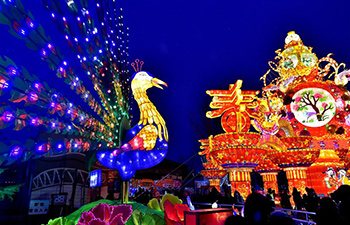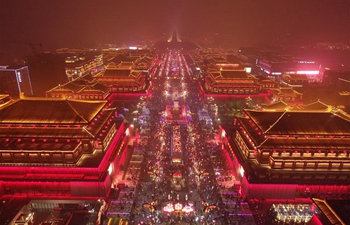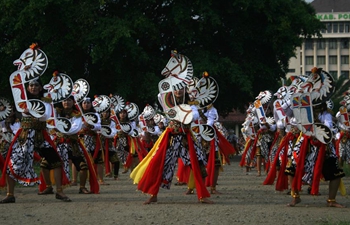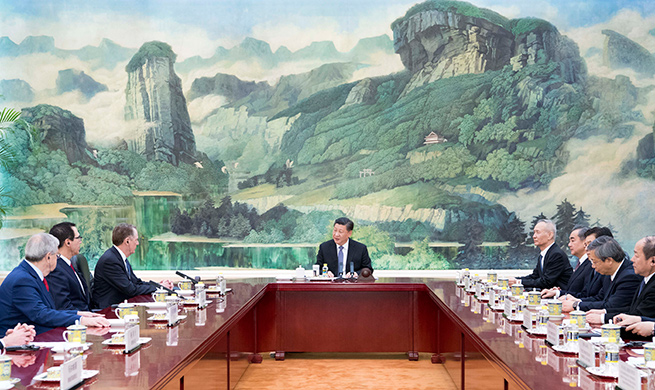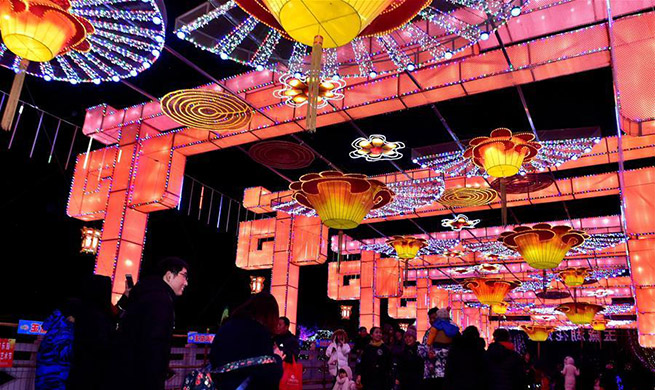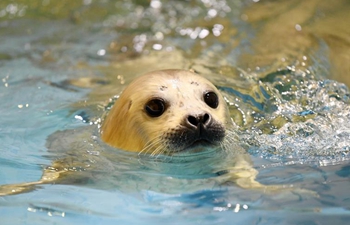NAIROBI, Feb. 19 (Xinhua) -- China's efforts to ban ivory trade have received worldwide acclaim as the effects of its strict measures are starting to be felt.
A nationwide prohibition has drastically brought down sales and demand for ivory since 2017 in China, once the world's largest ivory market, garnering appreciation from international organizations and conservationists.
"On behalf of the government of Kenya and the 32-member Coalition (African Elephant Coalition), I express our collective gratitude to China for closing its domestic ivory market," the Kenya Wildlife Service tweeted on Saturday, quoting Najib Balala, cabinet secretary of the Ministry of Tourism and Wild Life of Kenya.
According to data released by China's General Administration of Customs, in 2018, China's customs seized 25,671 endangered species and their products, including ivory items weighing 800 kg in total.
"China has set an example for the world in wildlife protection and shown the determination of a responsible stakeholder on the global stage," said Dr. Sun Quanhui, a science officer of World Animal Protection, a United Nations general consultative organization.
During a survey in 2018, only 12 percent of respondents claim to have purchased ivory in the past six months compared to 26 percent of respondents who reported doing so in a similar 2017 pre-ban survey, a 54 percent decline, according to a report released by TRAFFIC, a wildlife trade monitoring network, and the World Wildlife Fund (WWF) in September 2018.
"We are encouraged by the decline in both trade and consumer demand since the ban went into effect, but there's still work needed to address the persistent demand and lack of awareness among consumers in some parts of the country," said Jan Vertefeuille, a senior director for advocacy at the WWF.
Last month, as part of a three-year initiative, China partnered with WildAid and the WWF and launched a new round of public campaign to inform travelers that purchasing ivory products is driving certain species towards extinction and smuggling ivory could result in a life sentence, so as to improve public awareness of wildlife protection.
China has been intensifying its efforts in wildlife protection over the years. On Dec. 31, 2016, China declared it would enforce a complete stop to its domestic ivory trade within a year. On Dec. 31, the last day of 2017, processing or selling ivory and its products was officially illegalized in China with the complete ban entering into force.
"China's total ban on the ivory trade is a milestone achievement in the history of elephant protection and a most extraordinary measure taken in the global efforts of wildlife protection in recent years," Sun said.




